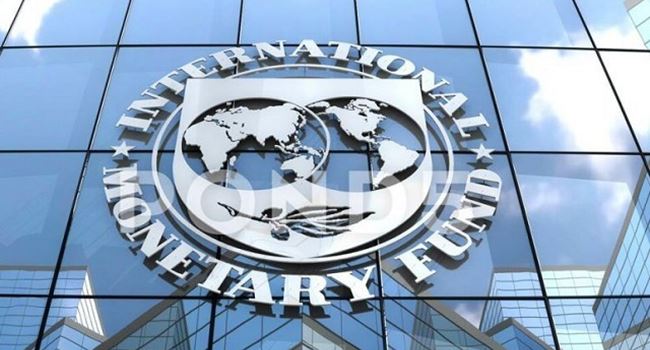Business
China’s slowing economy may decline Nigeria’s growth by .5%, IMF warns

The International Monetary Fund (IMF) has warned that China’s slowing economy will negatively affect Nigeria’s economic growth by as much as 0.5 points on average.
The Fund in a report titled “China’s Slowing Economy Will Hit Sub-Saharan Africa’s Growth” released on Thursday, November 9, 2023, disclosed that the country’s economic engagement with the region is evolving, with implications for growth, trade, and investment
“China has forged deep economic ties with countries in sub-Saharan Africa over the past 20 years, making it the region’s largest single-country trading partner. China buys one-fifth of the region’s exports—metals, minerals, and fuel—and provides most of the manufactured goods and machinery imported by African countries.
“However, China’s recovery from the pandemic has slowed recently due to a property downturn and flagging demand for its manufactured goods as global growth has also slowed.
“This matters for Africa. A one percentage point decline in China’s growth rate could reduce average growth in the region by about 0.25 percentage points within a year, according to the latest Regional Economic Outlook. For oil exporters, such as Angola and Nigeria, the loss could be 0.5 percentage points on average” the report started.
READ ALSO:IMF raises concern over global economic impact of Israel, Hamas war
The report further disclosed that the ripple effects of China’s slowing economy extend to sovereign lending to sub-Saharan Africa, which fell below $1 billion last year—the lowest level in nearly two decades. The cutback marks a shift away from big-ticket infrastructure financing, as several African countries struggle with escalating public debt.
It would be recalled that Chinese loans to the region rose rapidly in the 2000s, with the country’s share of total sub-Saharan African external public debt jumping from less than 2 per cent before 2005 to 17 per cent by 2021.
This makes China the largest bilateral official lender to countries in the region. However, the share of debt owed to China remains relatively small, at just under 6 per cent of the region’s overall public debt and is mostly owed by five countries—Angola, Cameroon, Kenya, Nigeria, and Zambia.
Consequently, the IMF advised that sub-Saharan African countries will need to adapt to China’s growth slowdown and declining economic engagements by building resilience through increased inter-African trade and by rebuilding buffers, including through tax policy reforms and improvements to revenue administration.
“Countries can improve their competitiveness by creating a favourable business environment, investing in infrastructure, and deepening domestic financial markets”.
By Babajide Okeowo
Join the conversation
Support Ripples Nigeria, hold up solutions journalism
Balanced, fearless journalism driven by data comes at huge financial costs.
As a media platform, we hold leadership accountable and will not trade the right to press freedom and free speech for a piece of cake.
If you like what we do, and are ready to uphold solutions journalism, kindly donate to the Ripples Nigeria cause.
Your support would help to ensure that citizens and institutions continue to have free access to credible and reliable information for societal development.
























